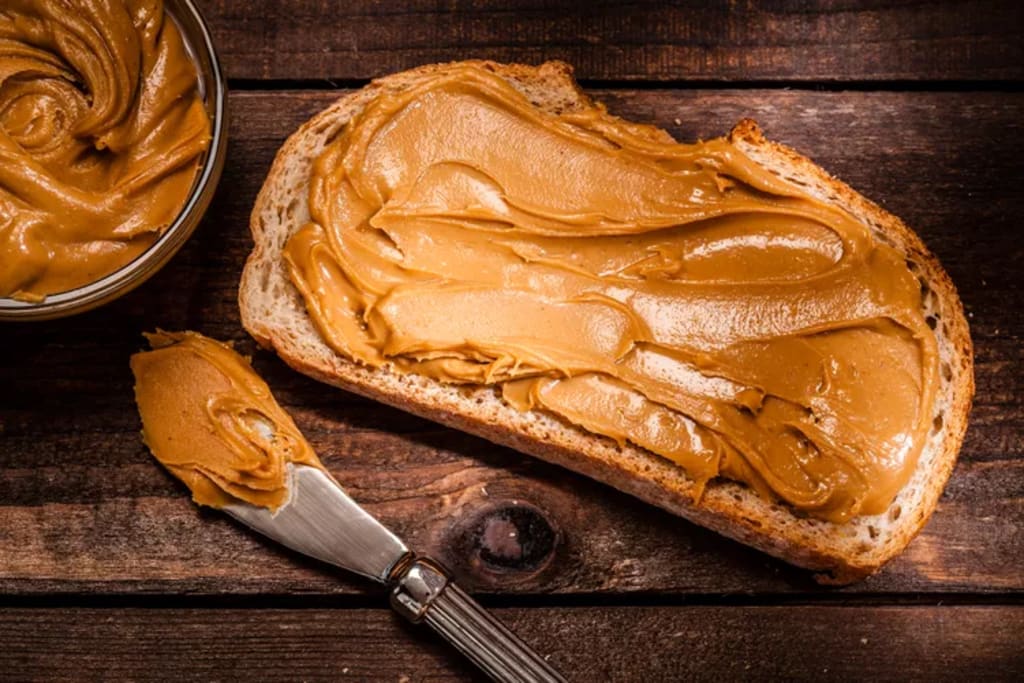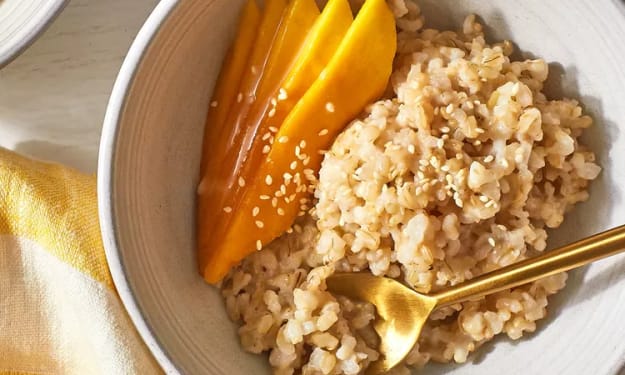How to Choose the Healthiest Peanut Butter, According to Dietitians
Whether you prefer creamy or crunchy, you’ll want to read this.

Walking down the peanut butter aisle may confront you with an overwhelming amount of choices to make. Between the dozens of brands, ingredients and special labeling, you might leave feeling confused about the healthiest choice to make.
We spoke to dietitians to find out exactly what they recommend when choosing the healthiest peanut butter at the grocery store. You’ll want to take a look at the nutrition label, consider any added ingredients and consider any personal dietary preferences or special needs you have when choosing the healthiest peanut butter for you.
When selecting a healthy peanut butter, opt for a product with minimal ingredients, preferably just peanuts and salt, or one that is without added sugars and oils, says Julie Balsamo, RD. “Look for natural varieties to avoid unnecessary additives or preservatives, and check for labels indicating no hydrogenated oils or trans fats,” she recommends.
What Makes Peanut Butter Healthy?
Peanut butter gets a bad reputation sometimes because it’s calorie dense, meaning a small serving provides a considerable amount of energy. However, peanut butter is a healthy food delivering a dose of heart-healthy unsaturated fats, fiber and plant-based protein. Peanut butter is also a source of vitamin B6, magnesium and potassium.1
Adding peanut butter into your diet may help you feel more full and satisfied due to the satiating nature of the fiber and protein it contains. For example, if you were to eat an apple or celery sticks on their own, you likely wouldn’t feel very full for very long. However, when you combine a piece of fruit or celery with peanut butter, you have a more balanced snack that provides all three macronutrients: carbohydrates, protein and fat. Balanced snacks keep us more full and help regulate our appetite after eating.
Keep in mind that a serving of peanut butter is 2 tablespoons, so you will want to be mindful of how much total peanut butter you consume in one sitting or over the course of the day.
What to Consider When Choosing Peanut Butter
While creamy and crunchy peanut butter may seem like different options, nutritionally they are almost identical. When it comes to choosing crunchy, this is more of a texture preference than a nutrition choice. That said, some creamy peanut butters may have a gram or two more protein per serving, adds Leah Johnston, RDN, a culinary nutrition certified dietitian with experience in cognitive health nutrition and research. Either way, when perusing the grocery store aisle for peanut butter, there are a few nutritional considerations to make.
You’ll want to take a look at the nutrition label on the back of the jar for added sodium and added sugar. Because of consumer demand, many peanut butter companies are reducing the total amounts of added ingredients like salt and sugar in their products, but it can’t hurt to take a look and compare a couple of jars.
Next, take a look at the ingredient list, which will help you understand more about any additives that are used. Some peanut butter companies use oil, salt or other added ingredients to preserve the product on grocery shelves for as long as possible. If you don’t have major nutrition limitations, choosing these options from time to time is no big deal. However as a general rule of thumb, look for no-added-salt and minimal added sugars for the healthiest product.
Tips for Choosing Healthy Peanut Butter
When choosing your best peanut butter brand, you’ll want to consider taste, texture and flavor in addition to your personal preferences.
Peanuts are nutrient-rich with protein, healthy fats and essential vitamins like iron, potassium and magnesium, adds Mackenzie Burgess, RDN, a registered dietitian nutritionist and recipe developer at Cheerful Choices.2 “Some research from The Peanut Institute has shown peanuts (along with other nuts) as key players in potentially supporting brain health and heart health,” she adds.34
Consider these nutrition label basics before you purchase:
Total Calories: When reading nutrition labels, you’ll want to look for products that are around 190 calories per 2-tablespoon serving. This is about the standard calorie count provided in a serving of peanut butter made from 100% peanuts.
Added Sugar: Double-check the nutrition label to see if there is any added sugar in the product. The recommended daily allowance for added sugar is 24 grams per day for women and 36 grams per day for men. Unless your peanut butter is flavored or extra sweet, you shouldn’t be hitting these targets with a serving of peanut butter. But a few grams here and there can add up, so opting for a nut butter without added sugar can help you lower your total added sugar intake.
Added Sodium: When you look at the ingredient list, search for simple ingredients like peanuts and salt, or just peanuts if you’re looking for an unsalted variety. A quality peanut butter should have ideally less than 150 milligrams of sodium per serving, comments Steph Magill, M.S., RD, CD, FAND, owner of Soccer Mom Nutrition
Nutrition Bonuses: You might consider going with a nutritionally enhanced peanut butter. This could mean searching for options that have added protein, fiber or unique nutrients to give them a boost. For example, some peanut butters add egg white for extra protein or omega-3 fatty acids to increase the healthy fat content. This is not necessary for peanut butter to be part of a healthy eating pattern, but consider these products in terms of your personal health goals






Comments
There are no comments for this story
Be the first to respond and start the conversation.